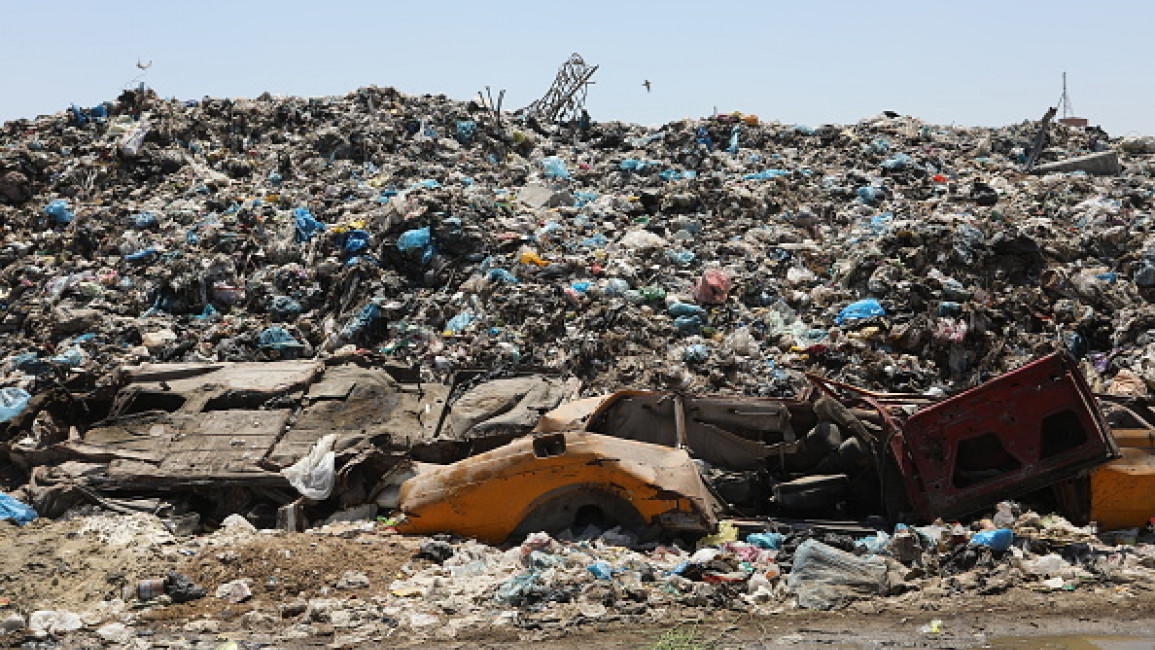Polio virus found as flies and mosquitoes feast on Gaza's waste, amid war
Polio has been detected in samples of sewage that is starting to take over Gaza in the grip of a devastating war, health authorities in the war-hit territory and Israel said on Thursday.
The announcement came after a European activist group released a report saying the Gaza Strip is "drowning" in hundreds of thousands of tonnes of human waste and rubble from the war, ongoing for over nine months.
The Gaza ministry said thousands of people in crowded tent cities of war-displaced were now at risk of contracting the highly infectious disease, which can cause deformities and paralysis.
UN health agencies started a global campaign in 1980 to eradicate polio, most often spread through sewage and contaminated water, but there has been a resurgence in recent years in Afghanistan and Pakistan.
The health ministry said tests carried out with the UN children's agency, UNICEF, "showed the presence of poliovirus" in the territory, which has been the target of a devastating Israeli military offensive since October 7. At least 38,848 Palestinians have been killed since, while Israel continues to wage atrocities in the territory.
The Israeli health ministry said poliovirus type 2 had been found in Gaza sewage samples tested in an Israeli laboratory.
Sewage now flows between the tents used by tens of thousands of displaced people across Gaza and the presence of poliovirus "marks a new health disaster," the ministry said.
Amid rising summer temperatures, Umm Nahed Abu Shar is already living a health nightmare in her family's tent in Deir el-Balah, central Gaza. City authorities said this week that waste water treatment stations had been turned off due to a lack of fuel.
"The heat, the diseases, the flies, the mosquitoes and their hissing, it all hurts us," the 45-year-old mother told AFP.
"We don't sleep at night because of the smell of sewage. My children do not sleep because they are always ill with something spread by the waste."
On top of hunger that UN agencies says has gripped Gaza since the war erupted on October 7, doctors say scabies, chicken pox, skin rashes and lice are spreading fast.
UN agencies have repeatedly warned of the risk of cholera and other more serious diseases becoming epidemics.
Umm Yussef Abu al-Qumsan, 60, has also had to leave her home and move to Deir el-Balah where she said it was "a miserable life among rubbish and insects".
Nearly every day she accompanies her children or grandchildren to queue for a nurse to help for diseases or mosquito bites.
"We buy many treatments. But we don't know if it is safe to eat or drink. Whether we can sit or sleep," she said.
Deir el-Balah city authorities this week predicted that "roads will be flooded by wastewater" and "diseases will spread" after it turned off sewage water pumping and treatment stations.
It said 700,000 people who have descended on the city in search of safety from fighting and air strikes are at risk.
A fire has burned on one dump at Al-Mawasi, a giant tent city near Khan Younis in the south, for the past week, according to 35-year-old Muhammad al-Kahlot.
The under-equipped emergency services have been unable to stop it.
Al-Mawasi has been bombed several times - once last Saturday in an Israeli bid to kill Hamas military commander Mohammed Deif and his deputy - and Kahlot said the waste is an added threat.
"We are suffocating from the foul smell of waste, the smoke and the heat," he said.
Pax, a Dutch activist group, said in a new study that "months of continuous bombing and Israel's fuel blockade have decimated" Gaza's outdated waste collection system.
"Local authorities report that the Israeli Defense Forces are preventing access to Gaza's three official landfills."
Pax said it has studied satellite imagery showing 225 growing waste dumps across Gaza.
The group said a "chemical soup" of matter and heavy metals could contaminate water supplies and farmland and "eventually toxic substances penetrate the food chain and find their way back to humans".
Pax warned that as water can "migrate over long distances" the danger could spread beyond the war zone.
"While the danger for Gaza is imminent, the overall region could soon confront grave ecosystem and public health problems."
#







 Follow the Middle East's top stories in English at The New Arab on Google News
Follow the Middle East's top stories in English at The New Arab on Google News
![Archbishop Hanna [Getty]](/sites/default/files/styles/image_330x185/public/1232952067.jpeg?h=edfda2ae&itok=ga18er46)

